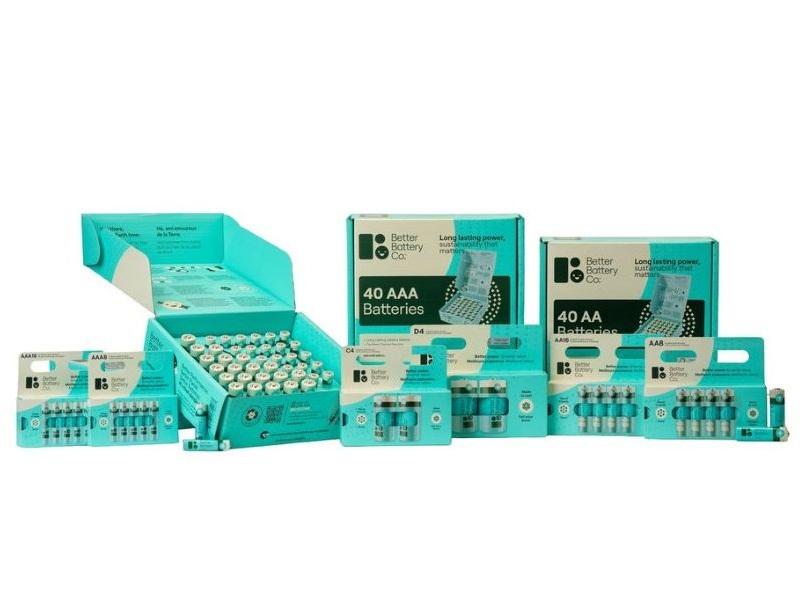
After finalizing a $63-million investment from SCR-Sibelco NV, acquiring a site in Thunder Bay for an electric vehicle battery materials facility and partnering for cleaner mining, Avalon Advanced Materials Inc. set the foundation for its future in 2023.
The Toronto-headquartered critical minerals developer has five projects mapped out to develop Canada’s lithium supply chain in order to meet rising global demand for batteries.
Those are:
- the Thunder Bay Lithium Industrial Parkway;
- Snowbank and Separation Rapids projects near Kenora, Ont. in joint ventures with Sibelco;
- Lilypad near Fort Hope, Ont., also in a joint venture with Sibelco;
- and the Nechalacho site in the Northwest Territories.
“We’re looking at helping Ontario set itself up as the preeminent place in North America and the world on lithium production,” Amiel Blajcham, Avalon’s manager of ESG, told Sustainable Biz Canada in an interview.
In its 2023 Sustainability Report, Avalon summarized its efforts to achieve its business targets and further its own sustainability.
The status of Avalon’s projects
After entering a joint venture in June with Belgian mining company Sibelco to commercialize its projects, Avalon can now focus on its specialties rather than build mines, Blajcham said.
In July, Avalon partnered with Finnish company Metso Corp. to use its lithium processing technology, which does not use or create sulphuric acid and generates an inert byproduct that can be sold commercially.
Additionally, a drilling program began at its Separation Rapids project in October. Also that month, Avalon announced it would partner with Metso to co-develop a Technology and Innovation Centre in Thunder Bay.
Blajcham also said Avalon hopes to do more work on its Northwest Territories project this year, such as preparation for an updated feasibility study.
Avalon’s sustainability in 2023
Avalon’s 2023 greenhouse gas emissions were measured at: 88.79 tonnes of carbon dioxide equivalent (tCO2e) of Scope 1; 9.04 tCO2e of Scope 2; and 15.60 tCO2e of Scope 3. Its overall emissions total 113.43 tCO2e.
Cumulatively, that figure is higher than 2022 when total emissions were calculated at 37.33 tCO2e, but lower than the 158.71 tCO2e in 2021, according to Avalon's 2022 Sustainability Report.
The emissions in 2021 were driven by Scope 1 emissions from the use of diesel-powered equipment during the Separation Rapids bulk sample program, according to the sustainability report for that year.
Blajcham said the COVID pandemic significantly impacted Avalon’s operations, affecting its emissions, which are “heavily impacted” by its drilling and exploration, and its downtown Toronto office operations to a lesser extent.
“Some years we’ve had more money than other years” Blajcham said, which allows for more use of diesel-powered drills. “Our GHG (greenhouse gas) emissions have historically been reflective of our ability to drill.”
The company did not specify how it would reduce its greenhouse gas emissions in the 2023 Sustainability Report. However, Blajcham named Avalon’s efforts to reduce energy use in its downtown office with smart programming and minimizing business travel using tools like Zoom.
At its mining sites, Avalon took steps to improve energy efficiency by optimizing activities. Those took the form of keeping its drill rigs as warm as possible in winter, lodging its vehicles close to mining sites and using more fuel-efficient trucks.
“Frankly, it’s not about anything sexy, but it’s just doing your job well and trying to chip away at things,” Blajcham said.
Changing from GRI to IFRS
The company made a significant change in its ESG reporting framework, a move Blajcham spearheaded.
Avalon shifted from the Global Reporting Initiative (GRI) to the International Sustainability Standards Board (IFRS) for two reasons. Avalon wanted to stay ahead of changing regulations and find a better match for a company of its size, Blajcham said.
The GRI made “significant differences” from 2016 to 2021 that would have affected its data collection and reporting scheduling, just as the IFRS set new standards, he said. Simultaneously, securities regulators in Canada and the U.S. have mandated companies must be compliant with the Task Force on Climate-Related Financial Disclosures (TCFD), but the 2021 version of GRI is not TCFD-compliant.
“If we have to retool our program anyways, we might as well retool to something that is TCFD-compliant and minimize our workload,” Blajcham said.
It also makes more sense for Avalon’s shareholders, he added, because the GRI is “great for large multinational companies, a little less efficient and a little less useful for a small company like ours.”
The shake-up will not change how Avalon collects or reports its data, Blajcham said. But its sustainability reports will cover data more relevant to the company and be shorter, noted.










